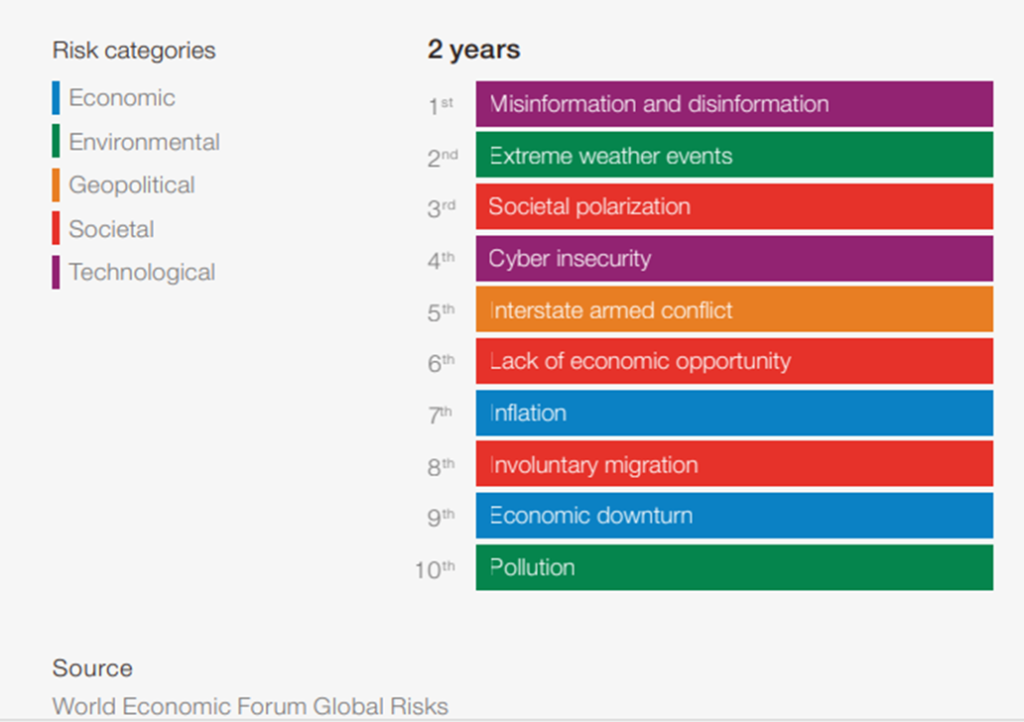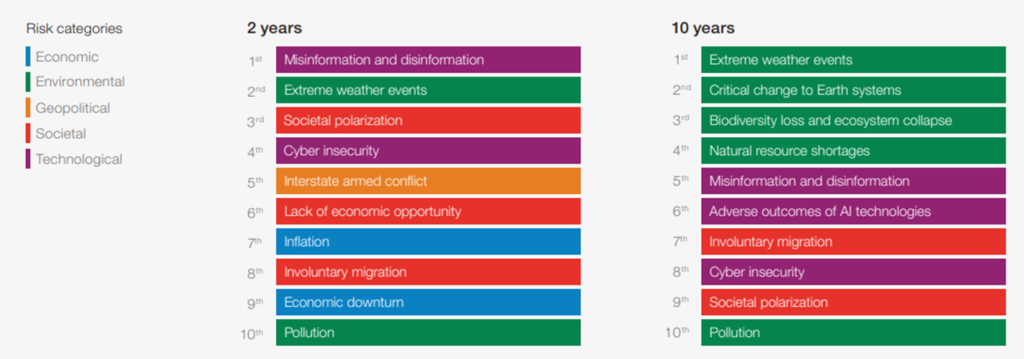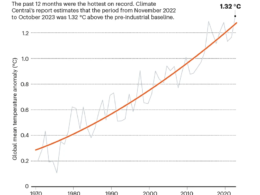The health strategist
research institute, knowledge portal & advisory consulting
for continuous health transformation
and digital health — for all
Joaquim Cardoso MSc.
Servant Leader,
Chief Research & Strategy Officer (CRSO),
Editor in Chief and Senior Advisor
January 14, 2024
This is an excerpt of the publication “Global Risks Report 2024”, published by the World Economic Forum, on January 2024″
Environmental risks continue to dominate the risks landscape over all three time frames.
Two-thirds of GRPS respondents rank Extreme weather as the top risk most likely to present a material crisis on a global scale in 2024 (Figure B), with the warming phase of the El Niño-Southern Oscillation (ENSO) cycle projected to intensify and persist until May this year.
FIGURE B Current risk landscape
“Please select up to five risks that you believe are most likely to present a material crisis on a global scale in 2024.”

Source World Economic Forum Global Risks Perception Survey 2023-2024.
Extreme Weather – is also seen as the second-most severe risk over the two-year time frame and similar to last year’s rankings, nearly all environmental risks feature among the top 10 over the longer term (Figure C).
FIGURE C Global risks ranked by severity over the short and long term (“Please estimate the likely impact (severity) of the following risks over a 2-year and 10-year period.”)

Source World Economic Forum Global Risks Perception Survey 2023-2024.

However, GRPS respondents disagree about the urgency of environmental risks, in particular Biodiversity loss and ecosystem collapse and Critical change to Earth systems.
Younger respondents tend to rank these risks far more highly over the two-year period compared to older age groups, with both risks featuring in their top 10 rankings in the short term.
The private sector highlights these risks as top concerns over the longer term, in contrast to respondents from civil society or government who prioritize these risks over shorter time frames.
This dissonance in perceptions of urgency among key decision-makers implies sub-optimal alignment and decision-making, heightening the risk of missing key moments of intervention, which would result in long-term changes to planetary systems.
A 3°C world explores the consequences of passing at least one “climate tipping point” within the next decade.
Recent research suggests that the threshold for triggering long-term, potentially irreversible and self-perpetuating changes to select planetary systems is likely to be passed at or before 1.5°C of global warming, which is currently anticipated to be reached by the early 2030s.
Many economies will remain largely unprepared for “non-linear” impacts: the potential triggering of a nexus of several related socioenvironmental risks has the potential to speed up climate change, through the release of carbon emissions, and amplify related impacts, threatening climate-vulnerable populations.
The collective ability of societies to adapt could be overwhelmed, considering the sheer scale of potential impacts and infrastructure investment requirements, leaving some communities and countries unable to absorb both the acute and chronic effects of rapid climate change.
As polarization grows and technological risks remain unchecked, ‘truth’ will come under pressure













